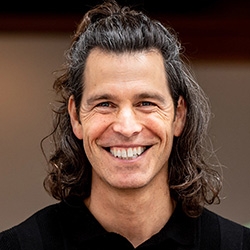

NVC Resources on Trauma
-
The American mythos of Independence Day is that liberty, equality, and opportunity are for all. Yet since the country's formation, these needs have been for some at the expense of others. It started with the brutal robbery and genocide of Native Americans and slavery of Africans. And this theme continued for generations in various forms, including how we related to other peoples, countries, and the ecosphere. To achieve true justice, liberty, and opportunity for all we may need to overcome the ego's sense of separation. Compassionate noncooperation may also be key.
-
When Dian works with managers, they often ask how they can manage others more effectively. She almost always asks them: how are you managing yourself?
This question applies to all aspects of life, both at work and at home. How are you: 1) gaining clarity around your needs; 2) managing your internal reactions; and 3) clarifying your requests before you open your mouth (or judge) others? This is why self-empathy – which Dian calls “self-management,” now a buzzword in business – is central to the practice of Nonviolent Communication.
Yet self-empathy is not always easy, especially if events in your life stimulate old, “fossilized” needs. These “fossilized” needs are often precognitive and connected to trauma, and as a result, “live” in your muscle memory. In order to fully release this “stuck” energy, it is necessary to engage your felt-sense while learning to empathize with your body and deeply connect with your younger parts.
Dian calls this process Somatic Self-Empathy (SEE).
-
NVC trainer Sarah Peyton explores the process of repairing relationships through the lens of Nonviolent Communication. She emphasizes the importance of self-connection and empathy—both for ourselves and others—when addressing moments of hurt or disconnection.
-
Amidst the Israel/Palestine war we see polarizing media portrayals and the battle for public opinion. Read how one person shares his deep, personal connections to the Israel/Palestine conflict, expresses the trauma and viewpoints of both Palestinian and Israeli experiences -- in a way that aims to transcend polarizations, hold compassion, and understand the complexity on both sides. Despite the immense challenge that defies easy resolution, he holds hope, noting historical reconciliations such as the ones between Germans and Jews.

Quick Links
Subscription Preferences
Stay In Touch!
Looking for ways to keep up with NVC Academy news, get special offers, free resources, or words of inspiration? Here are five ways to stay engaged:




